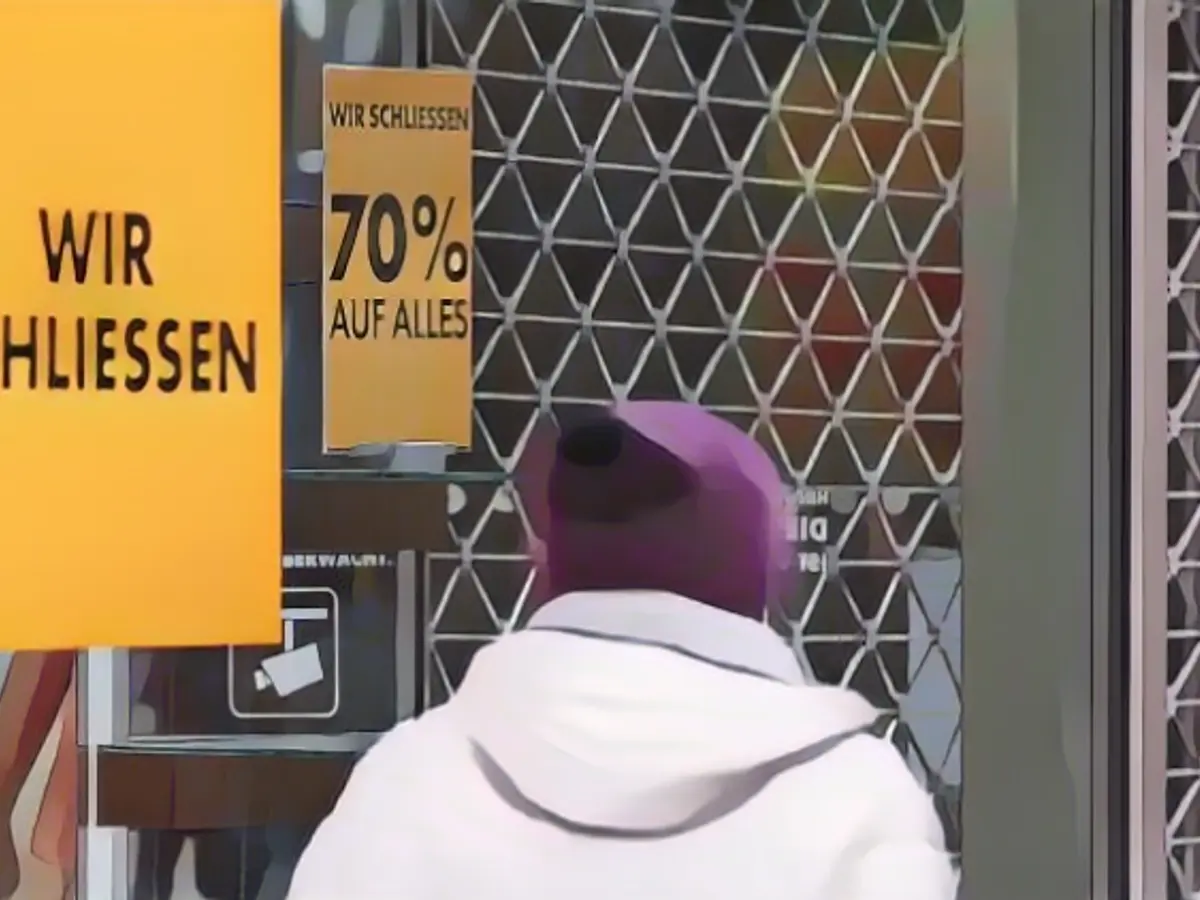German Economy Witnesses a Rise in Payment Defaults
The German economy is grappling with an increase in payment defaults, as reported by trade credit insurers. These insurers are expected to cover approximately 1.2 billion euros in losses due to trade credit and surety insurance for the year ending, marking a 44% increase over the previous year, according to GDV, the industry association.
"We're seeing significantly more and significantly higher losses due to insolvencies and payment delays than in the previous year," stated Thomas Langen, Chairman of the Credit Insurance Commission at GDV. Despite the rise in losses, credit insurers boosted their cover by 4.5% to 587 billion euros and increased premium income by 5% to 2.275 billion euros. However, these figures were not sufficient to offset the steep surge in claims, leading to a deteriorated combined ratio of 82% (compared to 67.7% in the previous year).
The rise in payment defaults has been particularly prominent in sectors like chemicals, mechanical engineering, and healthcare. Even industries traditionally considered crisis-resilient have been impacted. Bankruptcies in retail, both online and stationary, have been a significant contributor to credit defaults.
Background Information
Credit insurers play a crucial role in exports, as they insure suppliers against payment defaults by their customers (del credere or trade credit insurance). Among the leading credit insurers in Germany, Allianz Trade (previously Euler Hermes) holds the top position.
En Route to Economic Downturn
The underlying causes for the escalating payment defaults in the German economy can be attributed to several factors:
- Weak economic outlook: The German economy has endured a decline in economic output, with a 0.3% fall in 2023 and a 0.2% fall in 2024. The German Council of Economic Experts anticipates a marginal growth of 0.4% in 2025, but this is not substantially strong enough to minimise the default risks.
- High energy costs: Energy-intensive sectors such as the chemical industry and paper and glass production have been impacted by exorbitant energy costs.
- Geopolitical conflicts and trade barriers: Geopolitical conflicts and increasing trade barriers have resulted in supply chain disruptions, affecting export-dependent companies. Intensified trade disputes, like between the US and China, impact the global economy, with direct and indirect consequences for Europe.
- Structural changes and climate transition: The transition towards a climate-neutral economy has brought about structural changes in industries, particularly the automotive sector, which is undergoing major transformations.
- Rising interest rates: Higher interest rates have added to the financing costs, particularly for heavily indebted countries, resulting in an increased default risk and reduced credit ratings.
Impact on Credit Insurers
The payment defaults and economic downturn have posed several challenges for credit insurers, including:
- Risk Management Challenges: Insurers have significant exposure to corporate, bank, and government bonds, which amplify their risk management challenges. Private debt investments, in particular, pose high demands on insurers’ risk management.
- Loan Loss Provisions: Loan loss provisions at German banks have persistently increased, albeit at a low level. This trend is expected to continue due to the weak economic climate and unfavourable market conditions for commercial real estate.
- Non-Performing Loans (NPLs): The ratio of non-performing loans (NPLs) at German institutions has risen from 1.38% to 1.76%, between the third quarter of 2023 and 2024, and is expected to continue to rise due to the economic downturn.
Impact on Affected Industries
The payment defaults have adversely affected several industries, including:
- Commercial Real Estate (CRE) Sector: Rising interest rates and deteriorating valuations have driven developer defaults, with non-performing CRE loans increasing by 56% year-on-year. The decline in collateral values due to the downturn in the real estate market has contributed to the escalating NPL situation.
- Corporate Sector: Corporate insolvencies have surged, reaching an all-time high of 14,590 in 2024, marking a 16.7% year-on-year increase. Sectors such as construction and industrial manufacturing have been heavily affected. Additionally, job losses have reached nearly 38,000, resulting in significant financial distress.
- Banking Sector Stress: The proposed merger between Commerzbank and UniCredit adds another layer of uncertainty to the financial markets, potentially impacting the broader economic stability and German banking sector negatively.








